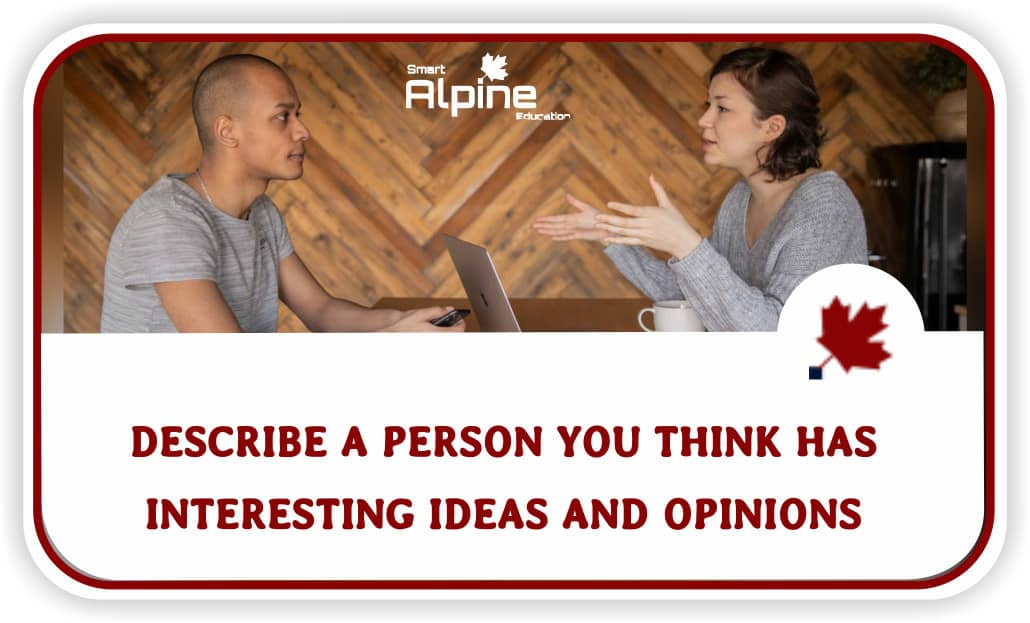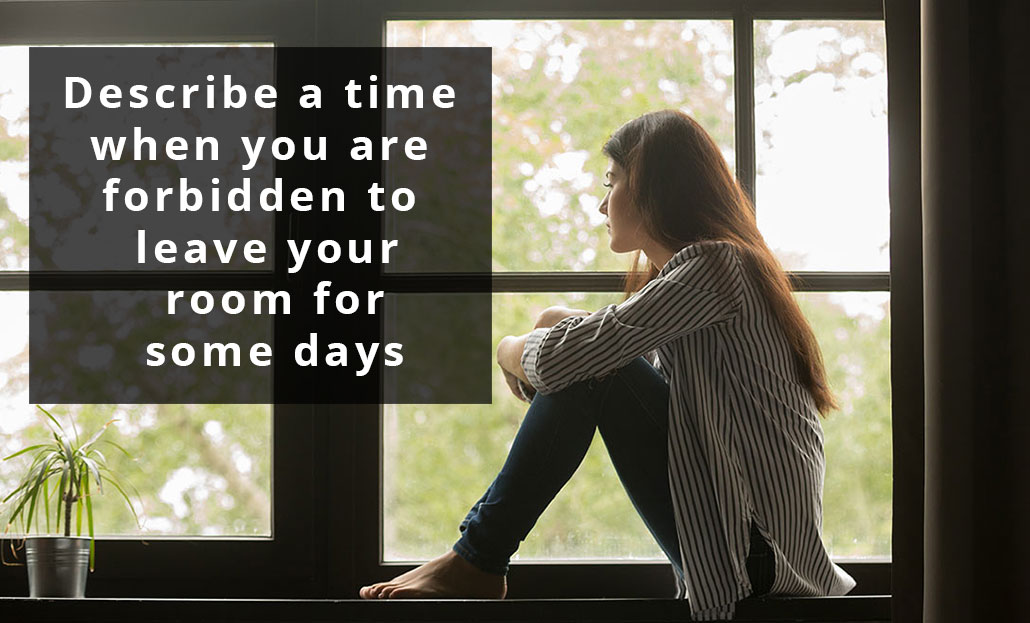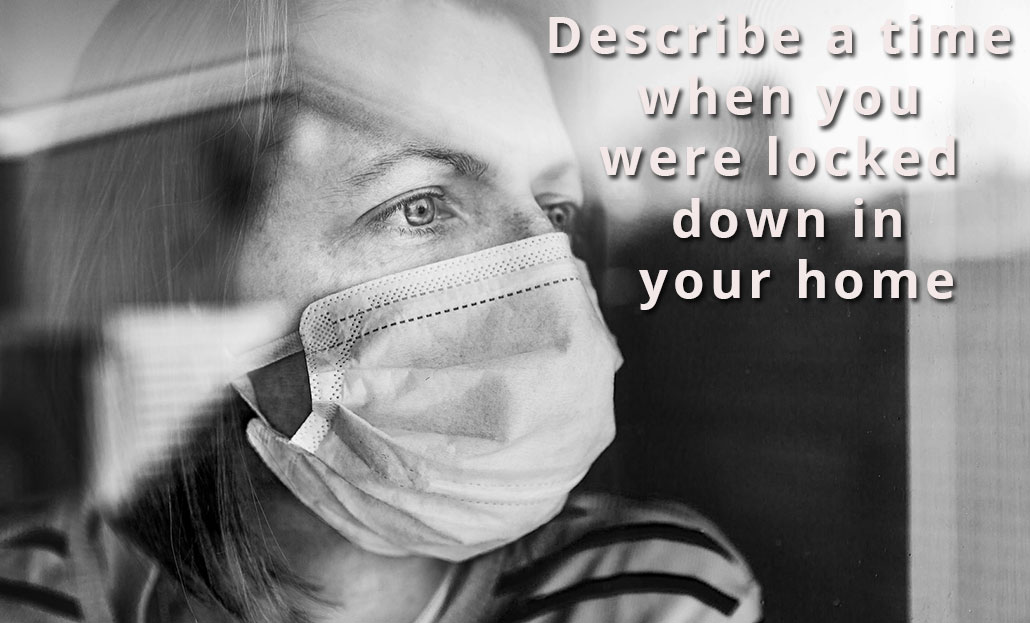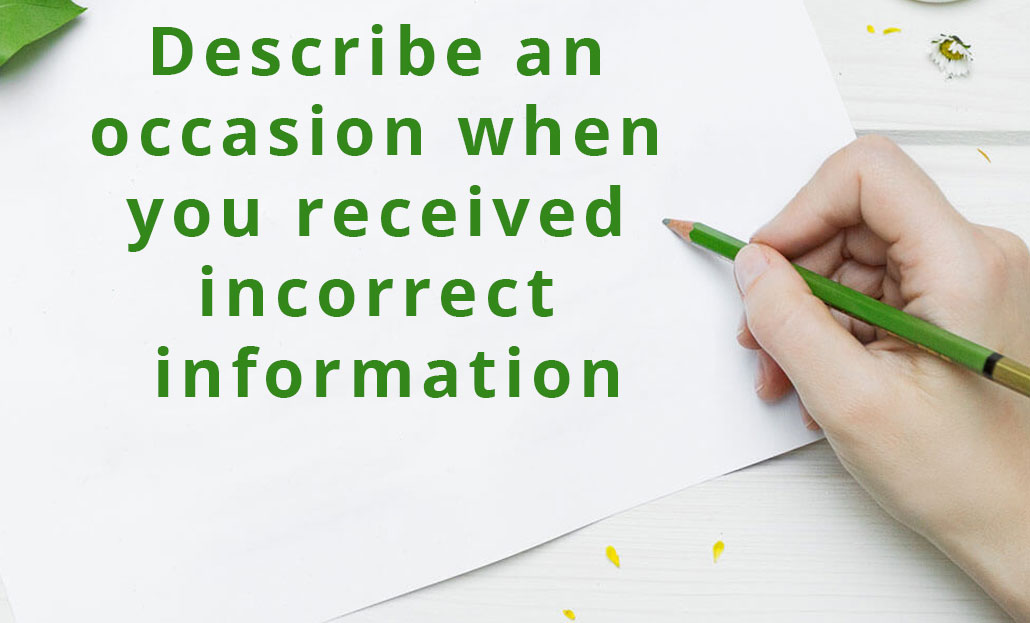
by smart | Apr 2, 2021 | Que Cards
You should say:
-Who this person is?
-What does this person do?
-How do you know this person?
-And explain what kinds of ideas and opinions he has and why are interesting
Model Answer
Introduction
- I’ve met a lot of people with interesting ideas and opinions.
- Most of those ideas have relevance to their environment.
- Today, I’ll like to talk about a woman who dedicated her life to helping others.
Who this person is?
- Mrs Singh was one of the nicest people I’ve ever met.
- Her lifetime involved giving back to the community.
- It doesn’t matter who you are, you can always come to her for anything.
What does this person do?
- She was a teacher .
- She cared about the children in the neighbourhood .
- Every evening she gathered all the children in the neighbourhood for free lessons.
- She teaches them all the subjects to help them understand what they did in class that day much better.
How do you know this person?
- She was my neighbour .
- she taught me everything I knew.
- I’ll take all my assignments along with me .
- and she will explain it better for me to understand .
- She did the same thing for every other child that came into our house.
explain what kinds of ideas and opinions he has and why are interesting
- Mrs Singh’s idea was to establish a big school for less privileged kids .
- which she did and I thought it was a very good idea.
- She also built a shelter for the homeless people around and a place for them to get food every morning and evening.
Conclusion
Not a lot of people get to execute their ideas. Those who do, do it perfectly. Having an interesting idea or opinion isn’t a bad thing, it shows a level of initiative.
Part-3 : Follow up Questions
1. Can we solve real-life problems?
Yes, we can. There are some really intelligent people good at solving real-life problems. It all depends on our capability and willingness to provide solutions.
2. Do you choose the right people for the correct ideas or opinions?
Answer: choosing the right people isn’t an easy procedure. You never know who’s ideas or opinions are right. Some ideas can feel right but they end up being bad

by smart | Apr 2, 2021 | Que Cards
You should say:
-Where did you watch it?
-What was it like?
-How often have you watched it?
-And explain why you like or disliked it.
Model Answer
Introduction
- Nowadays, there are many quiz show on TV.
- Some can also be found online.
- I’ll like to talk about dance Indian dance.
Where did you watch it?
- I went to visit a friend and she turned on the TV .
- The dance show was been aired at that time.
- from then on, I became a huge lover of the show.
What was it like?
- It was exhilarating.
- I couldn’t stop watching.
- I love dancing and that show taught a lot of moves.
- Anytime I watch I learn something new.
How often have you watched it?
- I rewatching Frequently.
- I’m always rewatching it online and on tv.
- Most times I watch the repeat with my friends when we are together.
And explain why you like or disliked it.
- It’s a fun show to watch.
- I enjoy the show and I also got my siblings interested in it as well.
- The fun and the thrill the show has to offer to make it one of my favourite shows.
Conclusion
The current trend of things has made it easy to watch any shows whenever you want. Even if you miss a show the internet is an alternative source to get it
Part-3 : Follow up Questions
1: Should children watch quiz shows?
Yes they should, it helps to build their intelligence and also increase their knowledge on things not taught in school.
2: What are the benefits of quiz shows?
Watching quiz shows helps connect people at the showing time. People gather at this time, watch together and discuss them. It also helps people release stress from working and studying. The format of the game show can be applied to in-class activities.

by smart | Apr 2, 2021 | May 2021 To August 2021 Cue Cards With Answers, Que Cards
You should say:
-When you invited them
-Where you had the dinner
-Why you invited them
-Explain how you felt about this dinner
Model Answer
Introduction
- Most people say breakfast is the most important meal If the day.
- I think dinner is also equally important.
- Inviting a friend over for dinner is a nice gesture.
- Over the meal, you get to talk about your day,
- Share fascinating experiences and just catch up with each other’s life.
When you invited them
- I’ll be talking about my old friend John.
- I invited him over for dinner last month.
- I was quite surprised to see him.
Where you had the dinner?
- We dined at my house.
- I prepared one of his favourite meal.
- And added a bottle of wine to it.
- It was a peaceful and entertaining dinner experience.
Why you invited them?
- I have not seen John for a long time.
- After school, everybody took different paths.
- We tried to keep in touch with each other but it was an easy task.
- Seeing him again after 5 years was very surprising.
Explain how you felt about this dinner
- It was a fun dinner.
- We got to talk about everything we’ve missed in each other’s lives for the past 5 years.
- Our ups and downs.
- Family, relationship.
- It was a great night.
Conclusion
It is a fun experience when you have a friend over for dinner. It also creates a bonding atmosphere.
Part-3 : Follow up Questions
1: What type of meal can be served at a dinner?
There isn’t any special meal or special occasion meal. It all depends on what you’re comfortable with and can afford. Most wealthy people have particular food they prepare during dinner but it’s not common.
2: Is it compulsory to invite a friend over for dinner?
No. If you feel like hosting a friend, then go for it. but if you don’t feel like it, then you should invite a friend. Inviting people to dinner is not paramount.
3: What is the purpose of hosting a dinner?
Ans: The main purpose of hosting dinner is to get together with family or friends, spend time and new memories together and also to keep the family or friendship bond alive.

by smart | Apr 2, 2021 | Que Cards
You should say:
-Why are you forbidden?
-When did it happen?
-What was your family’s reaction?
-Explain how you pass those days in your room.
Model Answer
Introduction
- As a child, we all did some things that got our parents angry.
- I know I did a lot .
- Sometimes the punishments are small, while others are severe.
Why are you forbidden?
- I remember an experience .
- I got into a fight with the neighbour’s kid and he got seriously injured.
- My parent was very angry because they had to take the boy to the hospital to treat his injury.
When did it happen?
- I was very young than about 12 years of age.
- We were playing in the compound before we started fighting.
- He then kicked my stomach,
- And I got so angry and hit him with a stone.
What was your family’s reaction?
- My parent was so angry nothing I said could pacify them.
- That was the first time my father beat me.
- After the beating, I was sent to my room with no food for the night.
- And I was to remain there for the next one week.
Explain how you pass those days in your room.
- I got bored immediately because my father removed every electronic gadget in my room.
- All I had left to entertain myself were my books.
- That was the period I read all the books I normally wouldn’t touch unless there an exam.
- I also read the novels, storybooks my mother used to buy.
- Although I was lonely, seeing others playing outside I couldn’t, I still entertained myself.
Conclusion
Children can be rambunctious and get themselves into trouble. Staying inside your room can be a punishment and also a blessing as you get to do things you’ve abandoned or forgotten about.
Part-3 : Follow up Questions
1. Is forbidding a child from leaving his or her room a good punishment.
Yes and no. Yes because it helps the child see the errors of his or her ways. It can also help that child develop a new hobby. And No, because that child can rebel and become a nuisance in the house or worst find a way to sneak out and run away which could be dangerous.
2: What other means can parents use to punish children for wrongdoings?
There are diverse means of punishments parents can use to correct their children but the most common one is withholding/withdrawal, parents take away privileges that may or may not have anything to do with their unacceptable behaviour.
3; At what age should parents stop punishing their children?
Parents should stop punishing their children the minute as soon as the child is old enough to stand on his/her own, not that they withdraw their support but there are other ways to make them understand their errors.

by smart | Apr 2, 2021 | Que Cards
You should say:
-When did it happen?
-How did you pass your time in that situation?
-How it changed your daily routine?
-and explain how you felt about the situation.
Model Answer
Introduction
- Being on lockdown is very frustrating.
- It can lead to so many unexpected things.
When did it happen?
- It was around last year.
- When the Covid19 outbreak was on the high side.
- And everyone was asked to shut down all business operations and stay indoor.
- A curfew was made too.
How did you pass time in your situation?
- It was a sudden news.
- So I wasn’t prepared to stay indoors for a long time.
- So I watch movies,
- Played games,
- Read books I had read over again.
- And also read new books too.
- I also got to work on my writing skills.
How did it change your daily routine?
- It changed my daily routine because .
- All the activities I had in my daily schedule got cancelled.
- And I had to make up a new one.
How did you feel about it?
- I felt restless a lot of times.
- As I didn’t have many things to keep me occupied at first.
- But later I got a hang of it.
- And acquired new art of skills.
Conclusion
Being locked up is not something I want to experience anytime soon.
Part-3 : Follow up Questions
1: What are the positive effect of being lockdown at home.
There are different positive effect like getting enough sleep, eating right and healthy, time to work out, have a good time with our families.
2: Do you think lockdown has negative effects
Being on lockdown can have serious mental health effects on the population, especially in weak factions, such as those living in poor socio-economic conditions, those who are homeless, migrant workers and asylum seekers/refugees. Also, these susceptible groups frequently have greater difficulty accessing health services and in treatment adherence.

by smart | Apr 2, 2021 | Que Cards
You should say:
-What was the information?
-How did you find out the information was incorrect?
-How did you feel about it?
-and explain how you managed the situation.
Model Answer
Introduction
- Miscommunication is a bad thing.
- Passing on the wrong information can derail plans that have been set and ready for execution.
What was the information?
- One day in school my courseware was passing around an information.
- That we will be having a Saturday class for revision before our exams.
- I already made plans to go out which I had to cancel.
How did you find out the information was incorrect?
- On getting to class, I met few people .
- and they said the class wasn’t holding that Saturday but the next one.
- The class rep made a mistake.
- He assumed the Saturday was the present one.
How did you feel about it?
- I was very angry and disappointed.
- because I had to turn down an opportunity to a certificate course.
- Something that will be useful to me in the future.
and explain how you managed the situation.
- I couldn’t go for the program I planned for .
- So I went back to the hostel.
- I met some friends revising and I joined them.
- In the end, I still gained something.
- Even though it was not what I planned for.
Conclusion
Incorrection information can have a terrible outcome. Ensuring the right information is shared is important.
Part-3 : Follow up Questions
1: Are wrong information shared in India?
Yes wrong information is shared, I don’t think there is any country where there is no misleading information. How that information is handled is what matters.
2: What are the negative effects of wrong information?
Exposure to inaccurate information steers confusion about what is true, doubt about valid knowledge, and successive dependence on falsehoods. Interventions and technologies constructed to address these effects by enabling critical evaluation can benefit effective awareness and learning.
3: Should children share wrong information?
No, they shouldn’t. It can lead to different negative development for the child.






